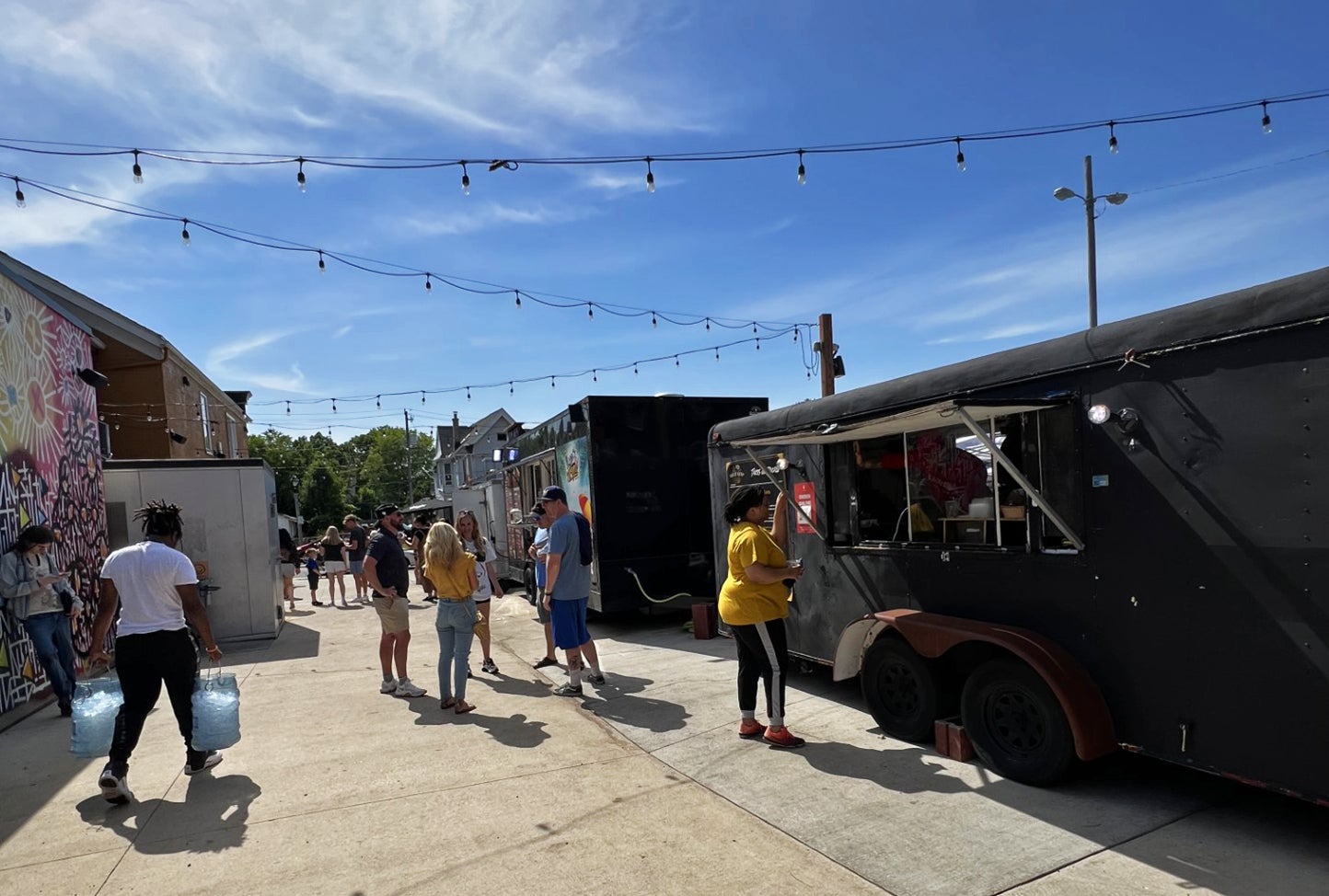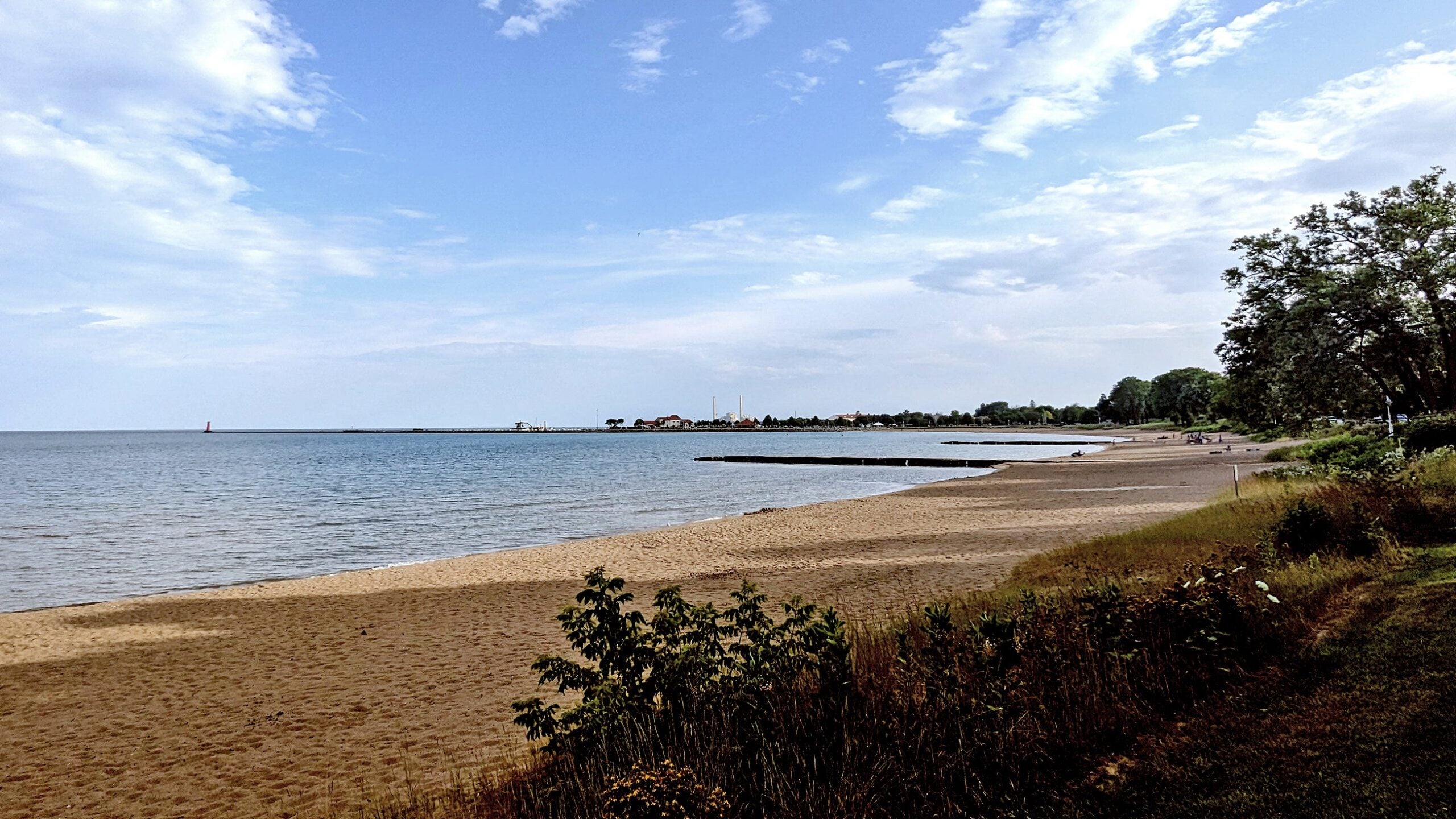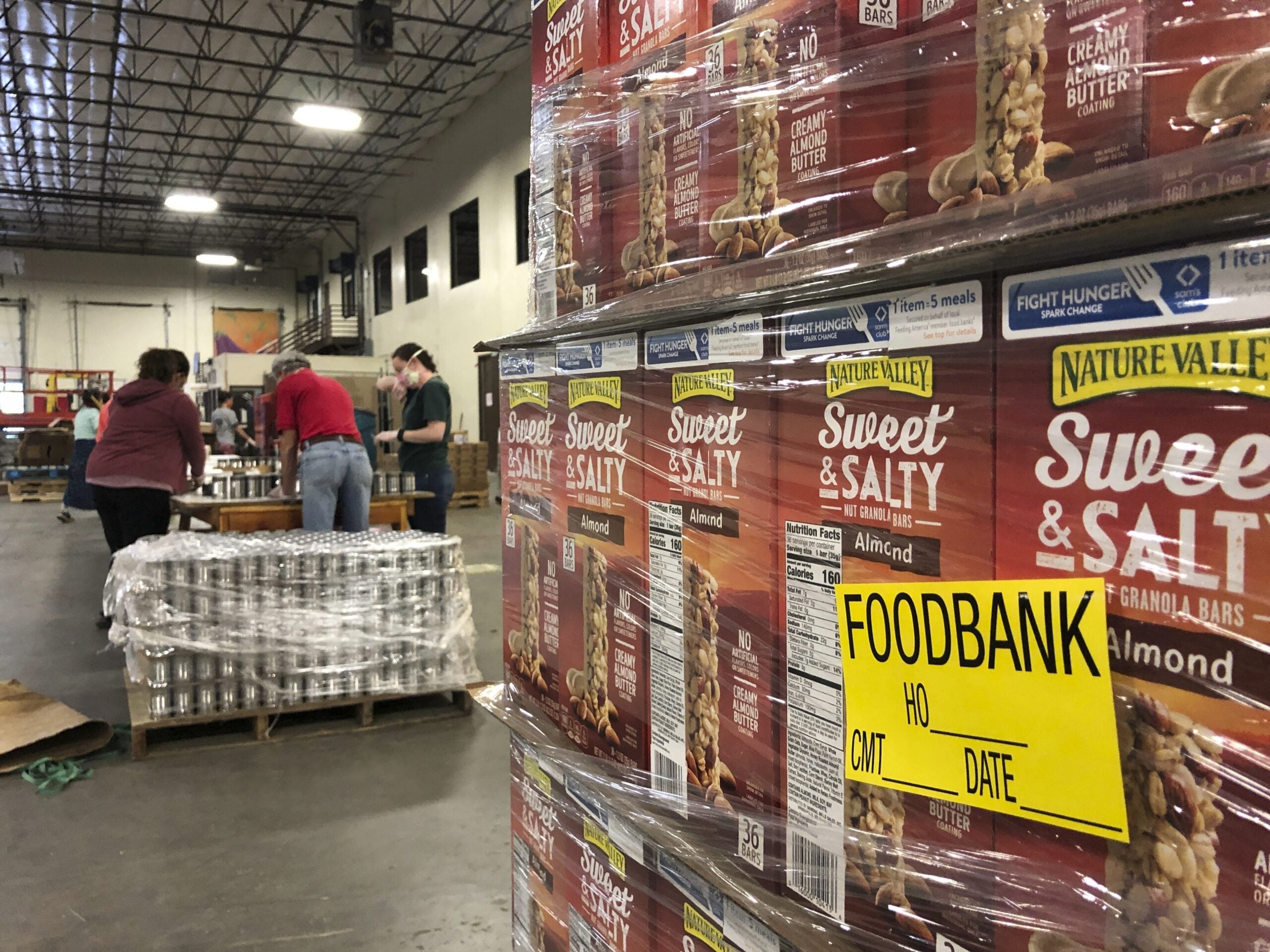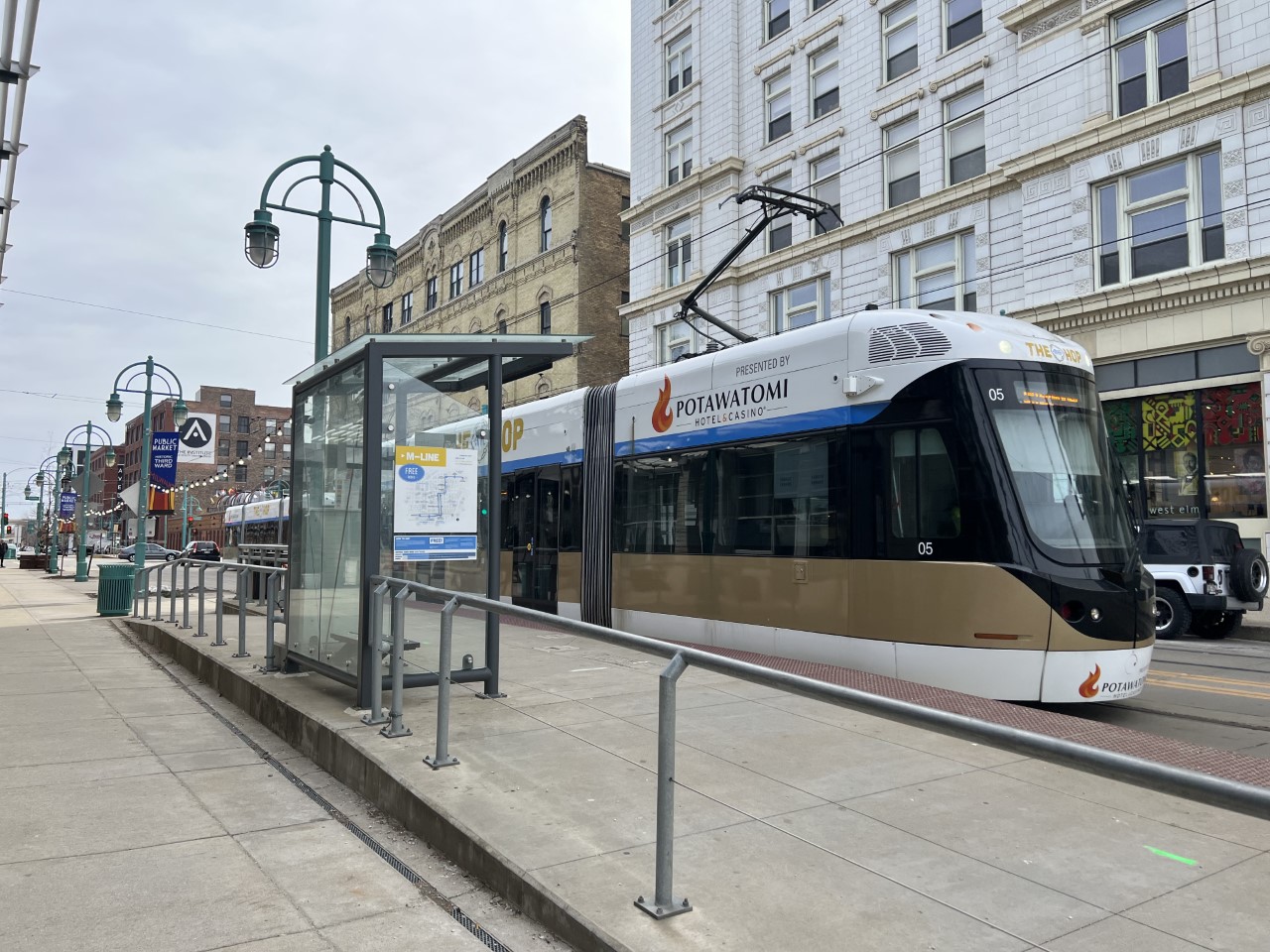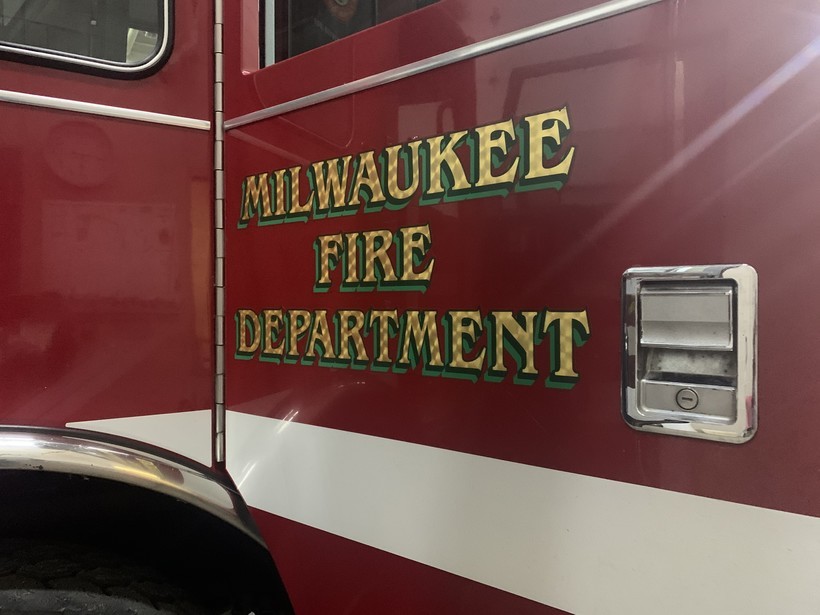A proposed city of Milwaukee ordinance would limit where and when food trucks can operate in certain areas throughout the city.
The ordinance, which goes before the Milwaukee Common Council later this month, would establish a downtown zone where food trucks wouldn’t be allowed to operate after 1 a.m., and would be required to move every six hours. It would also bar food trucks across the city from parking within 50 feet of most brick and mortar restaurants.
Leaders in support of the measure say it will help with public safety concerns related to traffic congestion and unruly patrons in places with a high density of food trucks.
News with a little more humanity
WPR’s “Wisconsin Today” newsletter keeps you connected to the state you love without feeling overwhelmed. No paywall. No agenda. No corporate filter.
Milwaukee Alder JoCasta Zamarripa, a sponsor of the ordinance, said it’s a better alternative to banning food trucks altogether.
“This gives food trucks an opportunity to continue to thrive, while also addressing the public safety and quality of life concerns of our constituents,” Zamarripa said during a recent Milwaukee Licenses Committee meeting.
Zamarripa said there’s been an influx of food trucks in recent years. In 2014, there were 82 applications for food trucks in Milwaukee. Last year, that number nearly doubled to over 150. That has led to more complaints from some area businesses and residents who live near the food trucks.
Alder Jonathan Brostoff is also a sponsor of the measure. In a press release, he said the city doesn’t have enough options for regulating food trucks.
“It’s either ignore the problem until it gets too bad or enact a heavy-handed ban,” Brostoff said. “We believe this will provide greater clarity and support for those good operators currently in business, while also providing the city mechanisms to deal with the small handful of bad actors.”
Peggy Williams-Smith, CEO of Visit Milwaukee, said she’s in support of ensuring food truck operators thrive across the city. But she told the Licenses Committee some common problems can include litter, noise and lighting complaints and gatherings of large groups.
“We believe, although we want to be a sociable city, we need some guard rails for that,” Williams-Smith said.
But not everyone approves of the provisions within the ordinance. Abdullah Ismail operates a food truck on Water Street in Downtown Milwaukee. He said his business makes the majority of its money every night after midnight.
“Why should I leave at 1 a.m.?” Ismail said during the public hearing.
He’s also worried about complications related to deliveries to his food truck if he’s required to move every six hours, as he’s often located in the same area.
Walter Garron leads a coalition of 17 taco trucks in Milwaukee. He said he wasn’t aware the city was considering making these changes until recently. He also blamed traffic problem on jaywalkers.
“We are hoping that moving forward, small business owners are taken in consideration, not only restaurants, but also those business owners, those taco food trucks and talk to them before we start making any changes,” he said.
Milwaukee’s ordinance says the Common Council can remove the 50-foot provision if they want to. Other cities like Chicago and Atlanta have laws barring food trucks from being within 200 feet of brick and mortar restaurants.
The ordinance notes the maximum number of food trucks in a zone on the city’s south side will be limited, “based upon density and traffic safety, as determined by the common council in consultation with the department of public works and the police department.”
That’s encouraging to Marium Galicia, who lives on the south side. She said she often feels unsafe when several food trucks are operating near each other, as it’s difficult to cross the street.
“So I think with this regulation … would help at least alleviate some of the congestion that is in the area,” she said.
Fines for food trucks that violate the ordinance would go from $5 to $50 for the minimum fine, and from $50 to $500 for maximum fine.
Milwaukee’s Licenses and Public Safety and Health committees both passed the ordinance last week. The Milwaukee Common Council will vote on it later this month. Milwaukee Mayor Cavalier Johnson is expected to sign the legislation, if it makes it to his desk.
But the conservative Wisconsin Institute for Law & Liberty, or WILL, said it will attempt to block the legislation.
“WILL is proud to support small business owners opposing these anti-competitive restrictions. If this ordinance is enacted, we would consider all legal options to stop these anti-competitive restrictions,” WILL Deputy Counsel Lucas Vebber said in a statement.
Wisconsin Public Radio, © Copyright 2025, Board of Regents of the University of Wisconsin System and Wisconsin Educational Communications Board.

